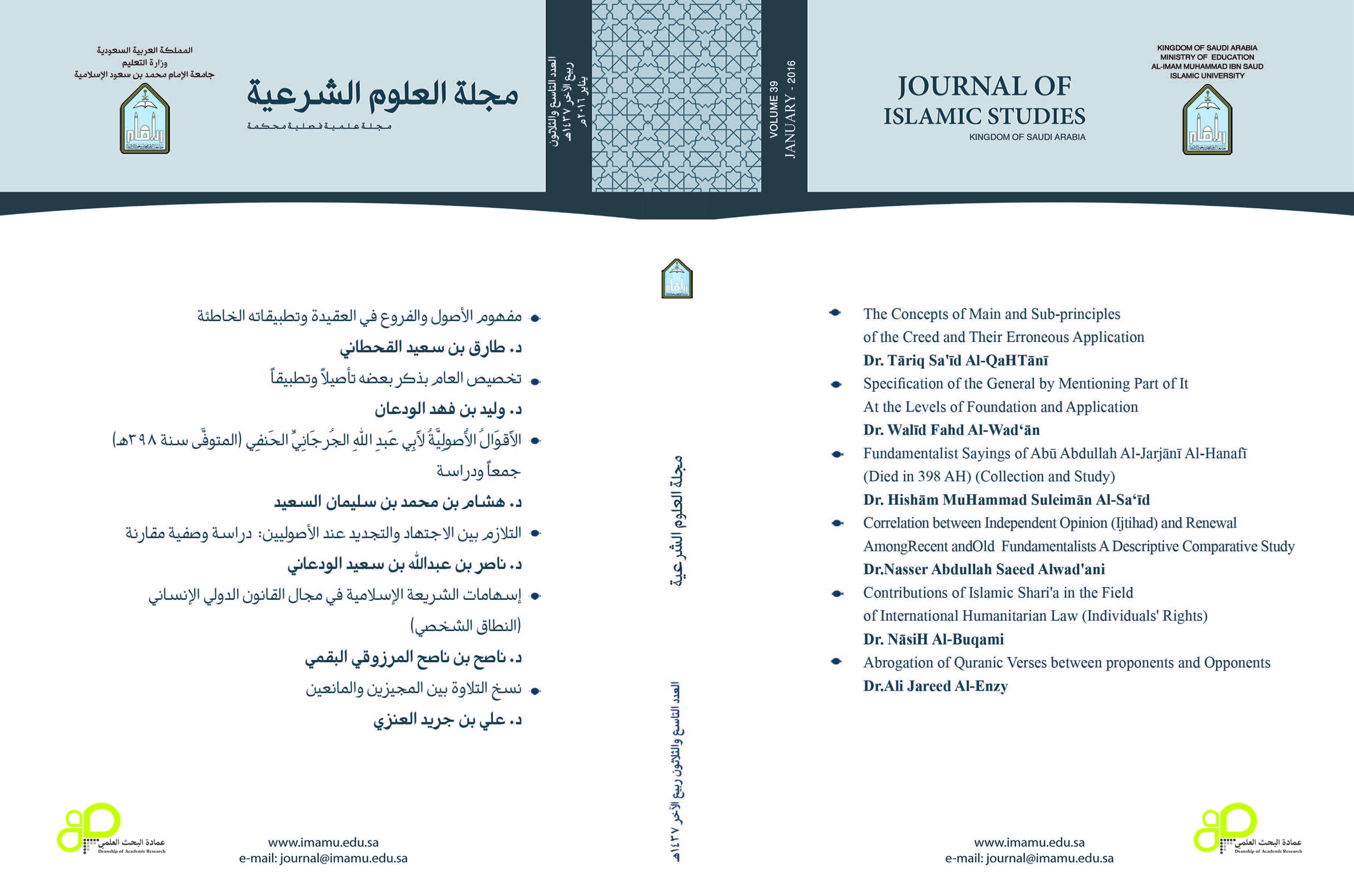Contributions of Islamic Shari'a in the Field of International Humanitarian Law (Individuals' Rights)
Abstract
This research Promoting international humanitarian law, and its properties, and its sources, and its scope of application, and implementation mechanisms, also addressed the contributions of Islamic law in these areas, especially the personal scope with respect to the treatment of prisoners, the wounded and the dead, and civilians, and spies, the following are the most important findings of the research:
1-The Islamic government has the freedom to determine the fate of prisoners among four things: killing them or release them or take a ransom and get them free or make them slaves. The Islamic government can also limit the choices to only two things: releasing or taking a ransom according to a rule of restricting permissible in Islam.
2-Civilians in Islam are: the children, women, the apostles, the older, the monks, the disabled and the workers and this is the widest meaning of the civilians according to the Geneva Convention of 1949.
3- It is not allowed to kill civilians and abuse the in Islam except in two cases: first when they participate in the fighting. Second: when the enemy use them as human shields.
4- While It is allowed to send a spy to gather information about the enemy, if a spy from the enemy's side is caught he should be killed and not to be treated as a prisoner.
5- Distortion of the bodies of the dead or burning them after the battle is not allowed in Islam.
6-attacking the civilian spots during the war, is divided into three sections in Islam: first is the one that needed to be destroyed like places which are so close to the enemy's defense line. Second are places which Muslims benefit from and it is forbidden to be destroyed. Apart from these two sections are places which do not harm the Muslims and only disturb the enemy, the correct view of scholars is that it should not be destroyed in any way.




